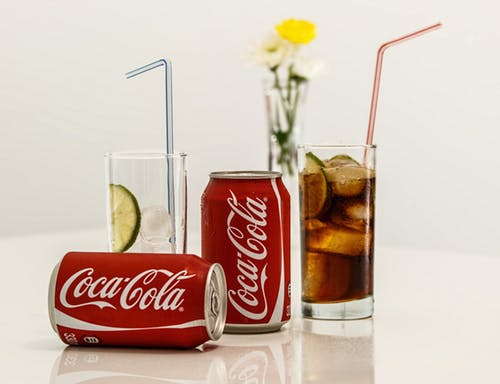Posted: Oct 28, 2019

CNN Slashing soft drinks from your diet is a quick way to improve your health and lose weight -- that much you probably already know.
But actually giving up your soda habit isn't always an easy task. While some people can function just fine without soft drinks, others find they need their fix starting at breakfast.
And we're not only talking about the sugary kind. For some, a daily soda ritual includes chugging multiple cans of artificially sweetened beverages, which aren't much better.
So what is it about soda -- both regular and diet -- that makes it so addictive?
According to Gary Wenk, director of neuroscience undergraduate programs at the Ohio State University and author of "Your Brain on Food," it's all in the beverage's design. Your favorite brand of soft drink is engineered with just the right amount of sweetener, caffeine and carbonation to make you continuously want to grab and gulp.
The sugar factor
Consider the fact that a 12-ounce can of Coca-Cola has a whopping 39 grams of sugar -- that's equivalent to about 10 teaspoons, and more than we should consume in an entire day.
But that rush of sweetness also appears to activate the same reward centers in the brain as drugs, Wenk explained. It triggers the release of the brain chemical dopamine in a region known as the nucleus accumbens, and as a result we feel euphoria.
"The sugar in the drinks ... swish through the brain, you get the dopamine rewarding you, and then the effect of the dopamine surge is gone almost as fast as it arrived, leaving your brain wanting more," Wenk said.
In fact, one review concluded that sugar can even be more rewarding and attractive than cocaine.
But satisfying that desire for more sugar can lead to larger cravings.
"The more soda you drink, the bigger the 'reward,' and as would happen with most pleasurable things, we develop an affinity and want even more of them," said Cordialis Msora-Kasago, a registered dietitian nutritionist and spokesperson for the Academy of Nutrition and Dietetics.
A caffeine kick
Sugar isn't the only ingredient to blame when it comes to soda's addictive qualities.
There's also caffeine, which is a stimulant -- "and our brain craves things that stimulate it," he continued. Caffeine not only speeds up our thinking but also has its own unique ability to activate reward pathways that involve dopamine, according to Wenk.
"Caffeine is one of the most widely consumed psychostimulants in the world ... and it does have an addictive property," said Dr. Marilyn Cornelis, an assistant professor of preventative medicine at Northwestern University. "[With soda], we're getting the sugar high combined with caffeine, and that is quite a good feeling that might cause you to consume more the next day or another time."
When consumed regularly, people often start to rely on caffeine to increase attentiveness, alertness and energy, according to Msora-Kasago. "They may feel dependent upon it and even experience signs of withdrawal, such as headaches and poor concentration, when they do not have it," she said.
The fizz factor
There's yet another element that plays a very significant role in soda's lure: the fizz. "If you take Coca-Cola and sit it on the countertop for a day or so, how much would you enjoy drinking it?" Wenk said.
In fact, carbonation makes any drink much more addictive, according to Wenk.
Those bubbles add a small amount of acidity, which when combined with sugar intensifies the euphoric "reward" feeling, Wenk explained. Carbonation also has the ability to make sugar take a bit of a back seat -- which is not to say that sugar doesn't still exert its pleasurable effects, but that the bubbles blunt the sweet taste just enough to make you crave even more.
No sugar, same problems
Although diet sodas replace real sugar with artificial sweeteners, those may have their own addictive characteristics. According to Msora-Kasago, they trigger taste receptors that register the sweetness and expect sugar, essentially preparing the brain for a reward that never comes.
And when "the brain doesn't get the reward it wants from its drink -- the real sugar -- it says, 'go out and get me some more,' " Wenk said.
And, as with regular soda, the carbonation compounds the effect of artificial sweeteners -- dulling the taste just enough to intensify our cravings and have us cracking open another can.
By Lisa Drayer
October 28, 2019
Source and complete article: CNN.com
Go-Wine's mission is to organize food and beverage information and make it universally accessible and beneficial. These are the benefits of sharing your article in Go-Wine.com